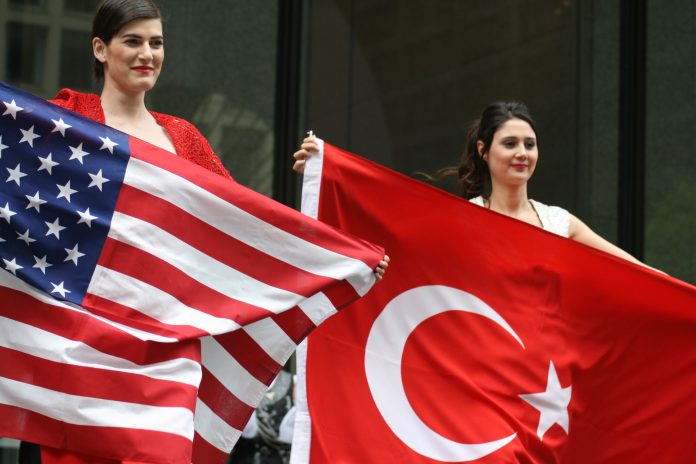For a traditional mind, America is a land of untold peculiarities; one of its features is the “hyphenated citizen” status. America is an immigrant country; the ancestors of the entire U.S. population who call themselves today “American” had come to this land from other countries during the past four centuries. Therefore, today in America almost all the nations have social and cultural extensions. The new-comers to this land arrive here with a determination of settling. This makes them identify with this country willingly, which make their adaptations conscious, and therefore, easier. Not to forget their heritages they call themselves “Irish-American”, “Polish-American”, “Italian-American”, etc. They draw a sense of pride from this blood identity with the old country. However, they are no longer Irish, Polish or Italian; they are a new breed, they are American at the core.
One of the recent groups that jumped onto the bandwagon is the Turks. Today, a new descendant of Turks is coming of age in America. They are the Turkish-Americans. Like all the other immigrants, the Turkish-Americans too are aware of the double cultural identity they possess. They have two sets of values, one acquired in this country, and the other infused at home. Yet those values do not clash, they reinforce one another. To reconcile those values harmoniously is the main task of each individual.
Much as the majority of the Turkish-Americans seem to have “made it” in various endeavours, like many immigrants, they have some adjustment problems to work out, such as mastering the language, assimilation, entering the mainstream as soon as possible, polishing their manners and to conform to social conventions.
Lately, the Turkish-American phenomenon is debated from various perspectives in Turkey, some call it a brain drain, yet others characterize it as a questionable patriotism that causes losing our time-tested traditional values. Those debates, however, do not address the socio-cultural problems of these pioneering generations, nor do they elucidate the matter and offer a fresh perspective to understand their struggle; rather, they provide a forum for some quasi-intellectuals to display their raw chauvinism in blusterous statements. These armchair patriots do titillate the patriotic sentiments of their audience, which sometimes resonate in the Turkish psyche effectively.
Like most of the other ethnic communities, the Turkish-Americans too are the extension of the old country. As they gain strength rapidly in the United States they become an effective voice for their motherland. They enhance the image of Turkey and promote her interests in this country through effective lobbying, media watch and school curriculum campaigns. They create business, trade and tourism potential for Turkey and promote the Turkish culture. Therefore, it is to the benefit of the motherland to have more Turks who are well-adjusted, established and attained status in this country who call themselves “Turkish-American” rather than having individuals with an identity crisis for not being a part of either world, yet call themselves “Proud Turk!” Today, certain countries, like Greece. Israel, Italy and Armenia draw strength from their Diaspora abroad.
As the name implies (Diaspora in Greek means: ”dispersion”, “sprout” “to sow”) those countries through their well-established communities grow roots in another country and broaden their cultural, economic, political, educational and social bases. All these translate to creating positive images for the old countries and gain strength.
Very often, in Turkey, people have unrealistic expectations from the Turkish-Americans. They assume that Turks living abroad should have the same values and the outlook as the Turks living in Turkey. In this country the freedom is widespread. There are respects for individual choices. There is acceptance, condoning and latitude. In Turkey, the norms are more rigid. Tolerance, empathy and forbearance are exercised sparingly. People are prone to fault-finding. This attitude is self-defeating, therefore harmful. Furthermore, it is immature and unbecoming for a country that claims to be democratic. In that regard, we have much to learn from America. This country is a colourful mosaic of race, religion, culture, language, and heritage; yet, it is a nation in its true sense. Notwithstanding those fundamental differences, each individual calls himself or herself an American. There is a unity of ideals, aspirations and interests; these are what make a society a nation.
Pennington, NJ

